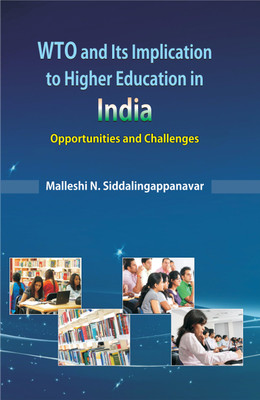WTO and Its Implication to Higher Education in India: Opportunities and Challenges(Hardcover, Malleshi N. Siddalingappanavar)
Quick Overview
Product Price Comparison
The Higher education service comes under the WTOŌĆÖs GATS agreement; as right now, very limited studies are concentrated on the issue of higher education in the context of GATS; in this connection, the present study is a unique of its kind; it contributes to the enrichment of literature in the field of higher education with reference to GATS. The book is organized into seven chapters. Chapter 1 presents the research design, covering significance of the study, research issues and database and limitations. Chapter 2 provides an issue-wise thorough review of literature on internationalization of higher education and identifies a wide range of issues for research. A brief historical perspective of higher education in India is provided in Chapter 3. An Overview of the World Trade Organization (WTO), General Agreement on Trade in Services (GATS) and summary of the commitment made by WTOŌĆÖs member nations on education sector is presented in Chapter 4. An analysis relating to the GATS article-wise implications on Indian higher education is provided in Chapter 5. In Chapter 6, the mode-wise analysis of trade in higher education services and the data on trends of Foreign Students Inflow and Indian Students Outflow by year-wise, sex-wise, subject-wise, country-wise, continent-wise, source of financial assistance for outflow are analyzed in detail, further opportunities and challenges of higher education services are evaluated. The last Chapter contains a summary of findings and important policy recommendations. This book will be useful to researchers, stakeholders and policy makers in deciding the type of policy intervention needed to tackle the problems of higher education under WTO regime.


